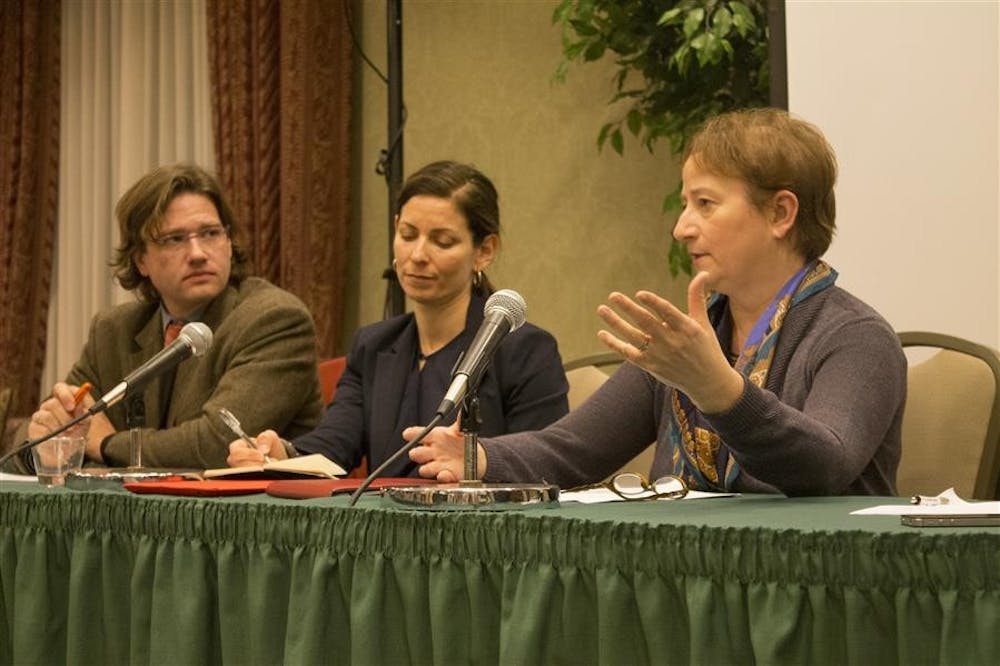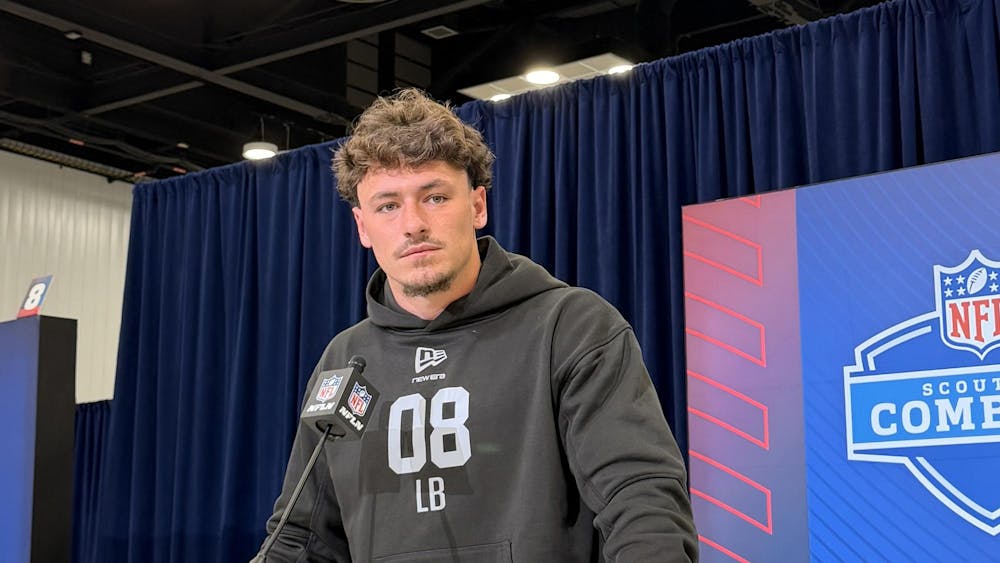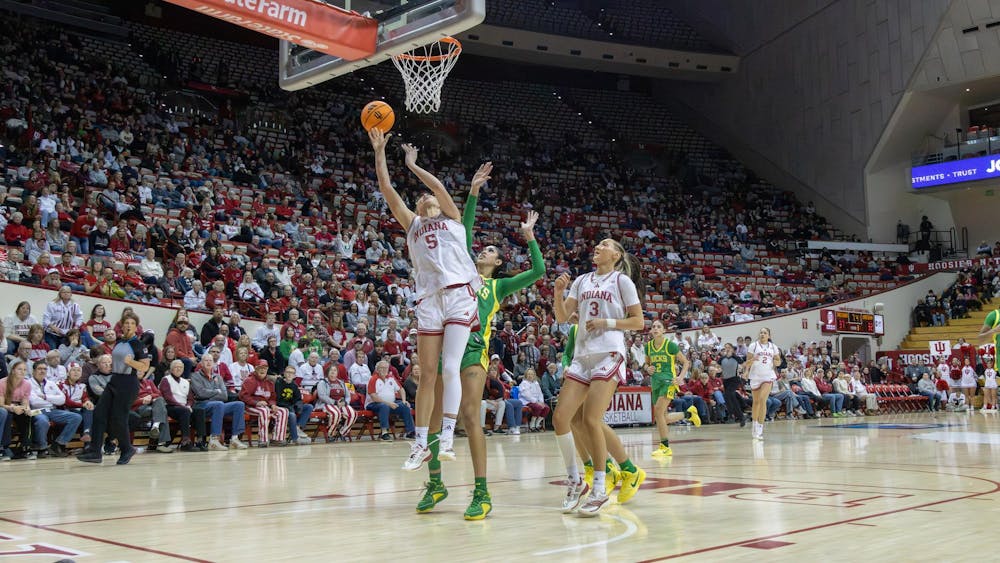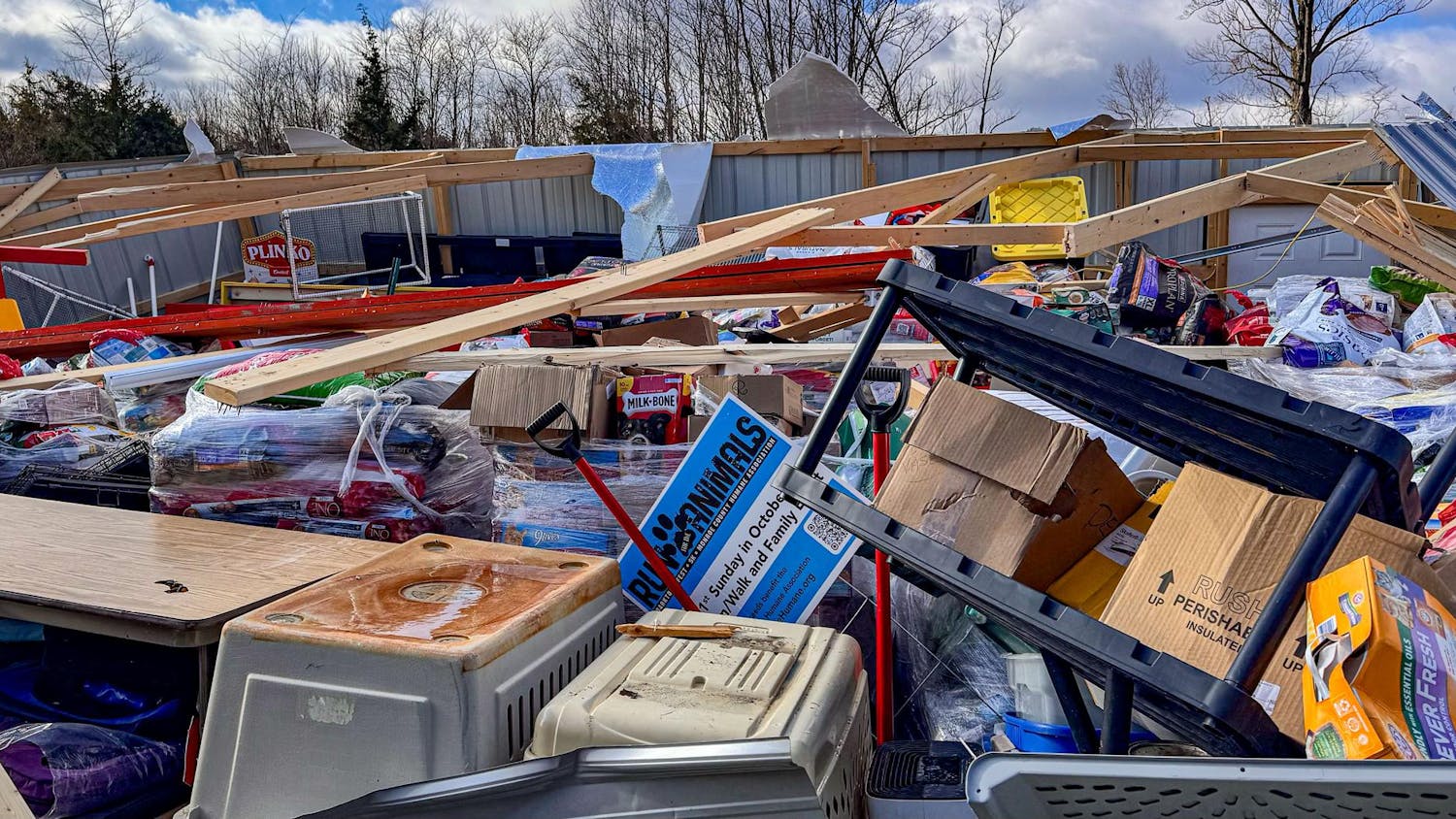IU Provost Lauren Robel and several guest speakers discussed the role of
a liberal arts education in civic life at a round table discussion Monday at the Indiana Memorial Union.
Professor Sara Guyer of the University of Wisconsin and Associate Professor Jason Kelly of IUPUI joined Robel.
Robel
opened the discussion by reviewing a recent report on the current
standing of the arts and humanities delivered to Congress by the
American Association for the Advancement of Science, as well as an
evaluation conducted by Harvard College.
Robel said both of these reports positioned the arts and humanities as
being at risk of losing students and in need of greater funding.
“Both of these reports have prompted tonight’s discussion,” Robel said.
Robel
said the study of arts and humanities provides a framework for students
to think critically, an essential attribute for global competitiveness.
“The danger of a liberal education is the possibility of creating powerful and independent thinkers,” Robel said.
Guyer stressed the value of humanities studies to universities at large.
She
said rather than thinking of the humanities as the exception to the
university, people need to know that the humanities are the university.
“The humanities aren’t the underdog of the university, but rather a
synecdoche,” Guyer said. “They’re the part that represents the whole
university.”
She said that a common question asked by professionals
when discussing the future of arts and humanities studies was the overall
usefulness of a liberal arts education in regards to career preparation.
“If universities gave only career preparation, there’s no reason for students to go to college,” Guyer said.
Guyer
said the main issue with discussing the humanities in terms of their
vocational worth is that it is impossible to predict which jobs will be
relevant in the future.
She said humanities studies are training for life itself.
Kelly
rounded off the discussion. He first talked about the history of the
role of the arts and humanities and spoke briefly on distrust of
scientism in the 1960s.
He quoted the National Foundation on the Arts and Humanities Act of
1965, which promoted the progress of the arts and humanities.
“An advanced civilization must not limit its efforts to science and technology alone,” Kelly said.
He said the defense of the humanities is usually framed in ethics and
people have recently tried to quantify humanities studies in terms of
how they benefit the overall community.
“These defenses have narrowed the discussion of the arts and humanities,” Kelly said.
The floor was opened to audience members when the three speakers were done.
One
audience member described the impact theater outings had on the high
school students he taught and said some saw their first stage play in
that class.
Kelly said becoming involved with the community in events like the
audience member had mentioned was important for students receiving a
liberal arts education.
“Working with community organizations
transforms our students,” Kelly said. “It puts our students out into the
workforce and lets them bring what they learn back into the classroom.”
Provost and guests discuss role of liberal arts in society

Get stories like this in your inbox
Subscribe





